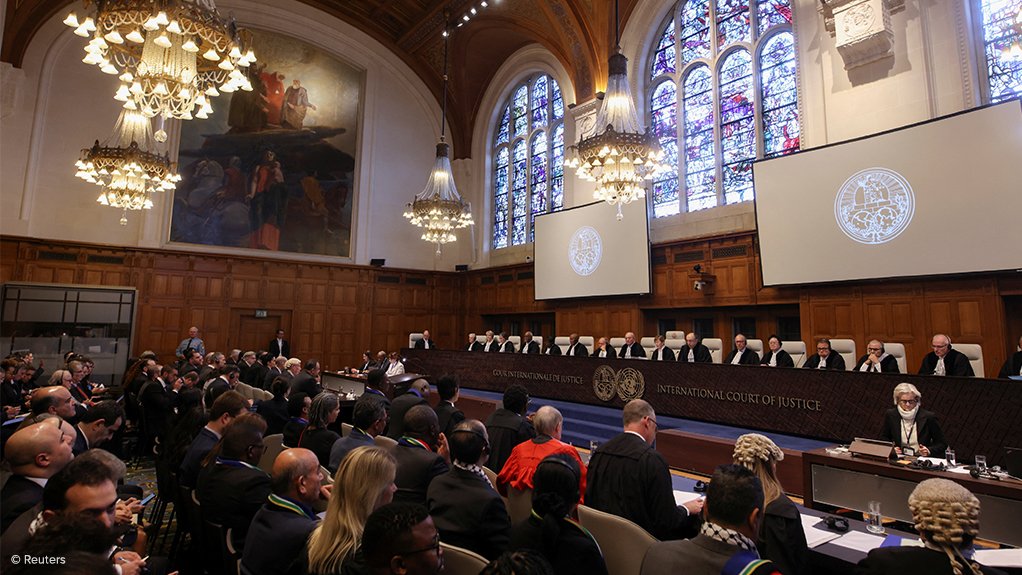South Africa did, in fact, win a ceasefire order against Israel, according to the International Court of Justice (ICJ) judge most opposed to its case. Even if the court did not say so directly.
The order granted by the overwhelming majority of the ICJ bench "in effect requires Israel to unilaterally stop hostilities with Hamas" across two different sets of measures stipulated, said Julia Sebutinde in a dissenting judgment published after the main ruling.
To comply, Israel would have to suspend its operations in Gaza even if Hamas continued to attack Israel, and regardless of whether Hamas freed the hostages it continues to hold, in Sebutinde's opinion.
South Africa had sought a direct order for such a suspension of Israel's campaign, and believes it was effectively granted through the broader language the ICJ used instead.
But Israeli officials claimed the lack of such an order as a victory, saying it reiterated Israel's right to defend itself.
In Palestine, many said they were disappointed the ICJ had not ordered Israel out of Gaza, in the face of a finding genocide may be taking place.
Sebutinde provided her analysis not in support of South Africa's case, which she believes should have been thrown out entirely, but to illustrate what she called the overly broad nature of the measures ordered by the ICJ.
The matter should never have been before the court in the first place, she said.
"In my respectful dissenting opinion, the dispute between the State of Israel and the people of Palestine is essentially and historically a political one… It is not a legal dispute susceptible of judicial settlement by the court."
The court should not have entertained South Africa's request for interim measures, Sebutinde wrote, because South Africa failed to show Israel has genocidal intent.
And without such intent, the Genocide Convention does not apply to the matter, leaving the court with no jurisdiction.
Sebutinde accepted Israel's arguments Hamas started the fighting - and is at least partially responsible for the high civilian casualties in Gaza - and alleged Israeli war crimes are not relevant in considering allegations of genocide.
In a key passage in her minority judgment, she said:
"The war was not started by Israel but rather by Hamas who attacked Israel on 7 October 2023, thereby sparking off the military operation in Israel's defence and in a bid to rescue its hostages.
"I also must agree that any 'genocidal intent' alleged by the applicant is negated by [1] Israel's restricted and targeted attacks of legitimate military targets in Gaza; [2] its mitigation of civilian harm by warning them through leaflets, radio messages and telephone calls of impending attacks; and [3] its facilitation of humanitarian assistance.
"A careful examination of Israel's war policy and of the full statements of the responsible government officials further demonstrates the absence of a genocidal intent.
"Here I must hasten to add that Israel is expected to conduct its military operation in accordance with international humanitarian law but violations of [international humanitarian law] cannot be the subject of these proceedings which are purely pursuant to the Genocide Convention.
"Unfortunately, the scale of suffering and death experienced in Gaza is exacerbated not by genocidal intent, but rather by several factors, including the tactics of the Hamas organisation itself which often entails its forces embedding among the civilian population and installations, rendering them vulnerable to legitimate military attack," she added.
Israel's appointment to the ICJ bench for the matter, Judge Aharon Barak, voted against some of the measures alongside Sebutinde, making for a 15-2 split.
But Barak voted with the majority on two of the orders granted, leaving Sebutinde as the only judge who did not want to see Israel ordered to "take all measures within its power to prevent and punish" direct incitement to genocide, and that it must "take immediate and effective measures to enable the provision of urgently needed basic services and humanitarian assistance" in Gaza.
EMAIL THIS ARTICLE SAVE THIS ARTICLE
To subscribe email subscriptions@creamermedia.co.za or click here
To advertise email advertising@creamermedia.co.za or click here











